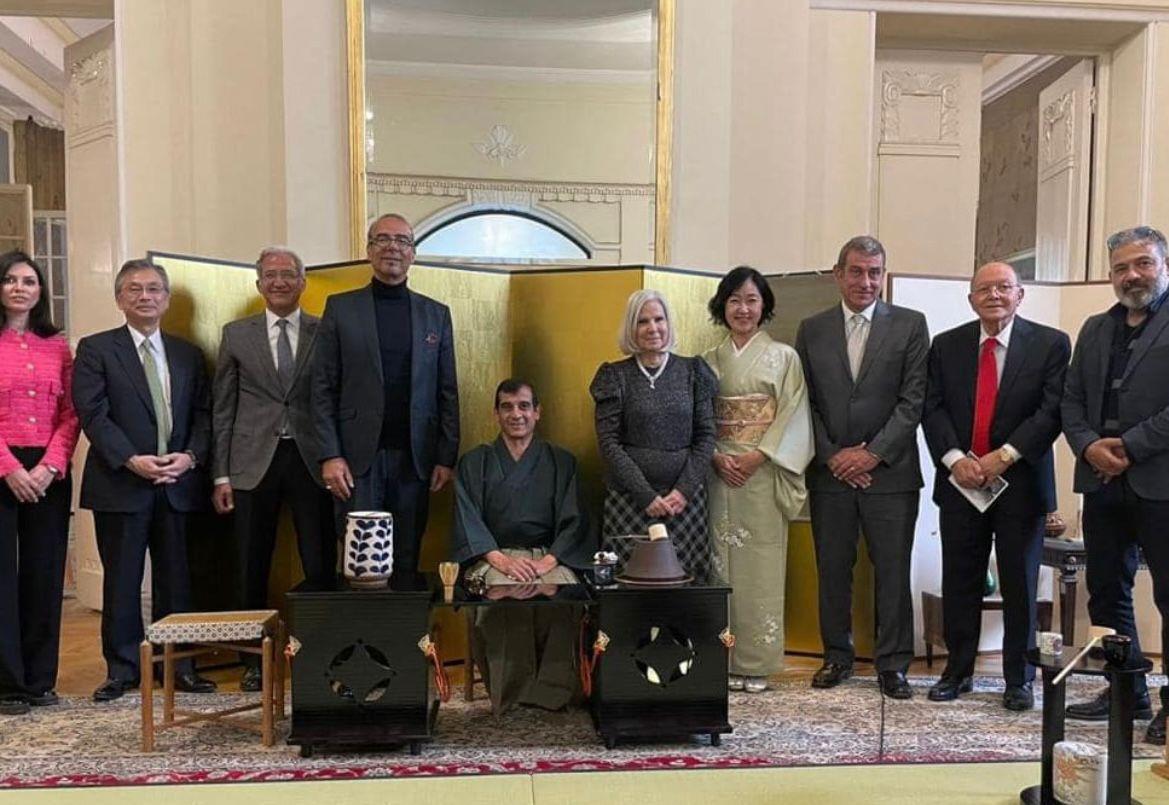
Japan Celebrates 70Th Anniversary Of Start Of Japanese Official Development Aid To Egypt In 1954: Ambassador
Ambassador Oka Hiroshi, Ambassador of Japan to Egypt, praised the distinguished bilateral relations between Cairo and Tokyo, noting that the current year witnesses the celebration of the 70th anniversary of Japanese development cooperation with Egypt, which began in 1954, as well as the 50th anniversary of the establishment of the Japanese Language Department at the Faculty of Arts, University of Cairo.
In his speech on the sidelines of his hosting of the traditional Japanese tea ceremony at his residence – which is held at the beginning of the new year, the Ambassador thanked all those responsible for spreading the Japanese language and culture in Egypt and said that there are currently 9 universities that have departments for teaching the Japanese language.
The ceremony was attended by Haifa Abu Ghazaleh, Assistant Secretary-General of the League of Arab States, Mohamed El-Sawy, Founder of El-Sawy Cultural Wheel, and Nader Abbassi, the conductor and composer.
During his speech, the Ambassador praised the existing cooperation between Japan and the League of Arab States, pointing out the visit of Prime Minister Fumio Kishida to the League's headquarters during his recent visit to Cairo, explaining that it was the first visit by a Japanese Prime Minister to the league, which was then followed by the Japanese Foreign Minister's visit to the League and his participation in the third round of the Arab-Japanese dialogue.
He said that there are many goals that have been achieved and that he looks forward to more cooperation in the coming years
He thanked the Urasenke Tankokai Association for its participation in the tea ceremony this year and said that the tea ceremony ritual is not only about tasting but is an occasion to learn about the origins of Japanese hospitality and respect for others, as well as learning about Japanese culture in general.
Tea is known to people worldwide, but nowhere has it contributed as much to the cultural milieu as in Japan. Here, the preparation and drinking of tea, in a special form called Sado.
Matcha is the powdered green tea blended with hot water. This form of tea was introduced to Japan in the twelfth century by Zen monks returning from study in China. In Zen temples, it was used as a mild stimulant to clear the mind during
meditation, was valued as a medicine, and had symbolic ceremonial use. In time, the enjoyment of matcha spread to the ruling and noble classes, who would hold lavish tea functions that featured the display and use of Chinese art objects.
From these two disparate uses of matcha, there evolved the idea of tea gatherings acting
as distinct mediums for spiritual and aesthetic fulfilment, and this gave rise to the creation of
rooms designed especially for such gatherings.
The ritual of serving Japanese tea is known as“Sado”, which is the process of preparing and drinking it in a special way. Matcha is powdered green tea mixed with hot water. The first people to introduce this type of tea to Japan in the twelfth century were the monks of the Buddhist sect after they returned from studying in Japan. China.
The Japanese tea serving ceremony has precisely defined rules and traditions, and it may appear at first glance to be just a ritual, but deep down it contains feelings of compassion and respect towards others or guests.

Legal Disclaimer:
MENAFN provides the
information “as is” without warranty of any kind. We do not accept
any responsibility or liability for the accuracy, content, images,
videos, licenses, completeness, legality, or reliability of the information
contained in this article. If you have any complaints or copyright
issues related to this article, kindly contact the provider above.


















Comments
No comment